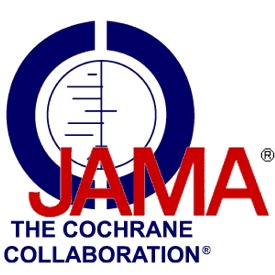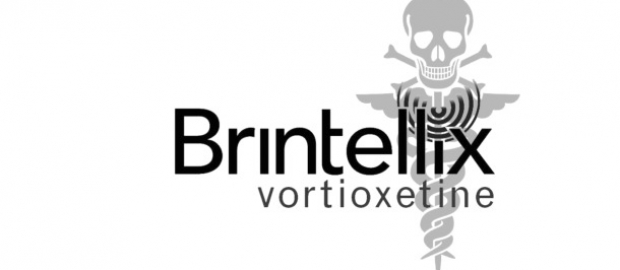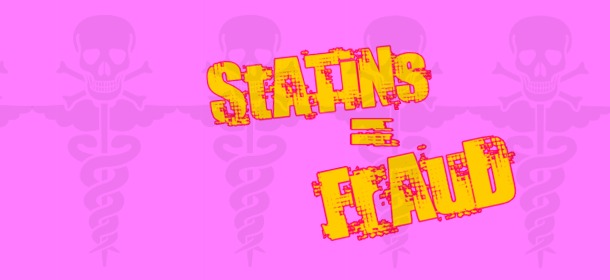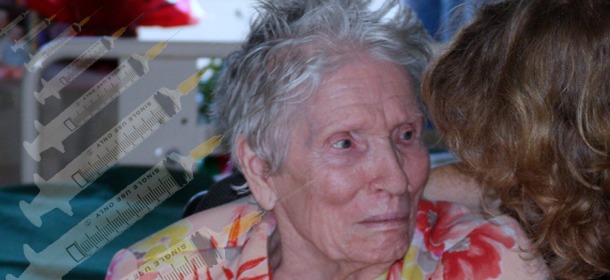Conventional Med
JAMA & Cochrane Tacitly Admit Evidence-Based Medicine Nonexistent
 The prestigious Journal of the American Medical Association and the Cochrane Collaboration have jointly and officially concluded, albeit tacitly, that evidence-based medicine does not generally exist. To counter that lack, they are suggesting voluntary changes in how medical studies are reported.
The prestigious Journal of the American Medical Association and the Cochrane Collaboration have jointly and officially concluded, albeit tacitly, that evidence-based medicine does not generally exist. To counter that lack, they are suggesting voluntary changes in how medical studies are reported.
JAMA’s article on the subject, “A Model for Dissemination and Independent Analysis of Industry Data“, starts with the statement:
Each day, patients and their physicians make treatment decisions with access to only a fraction of the relevant clinical research data.
Cochrane’s statement, “The Cochrane Collaboration Supports Free Access to all Data from all Clinical Trials“, says:
Selective reporting of trial results occurs frequently, leading to exaggerated findings of the beneficial effects of healthcare interventions and underestimates of their harms. As a consequence, many patients are unknowingly treated with interventions that have little or no effect, and may be harmed unnecessarily. This is unethical and has been said to violate the implicit contract between healthcare researchers and patients, where the aim of research is to improve treatment of future patients.
Gaia Health applauds this acknowledgement by JAMA and Cochrane. However, the two journals suggest dramatically different approaches to resolving the problem. JAMA suggests only voluntary commitment by industry, whereas Cochrane advises laws with teeth in them. Neither one, in the view of Gaia Health, goes far enough.
The Acknowledged Problem
As Gaia Health keeps noting, so-called evidence-based medicine is nothing of the sort. The studies on which the concept stands only too often are little more than jury-rigged systems designed to produce the results desired by profiteering corporations. Conclusions are often not supported by the evidence given. Yet, that is merely the tip of the iceberg. As JAMA and Cochrane both admit, most of the data isn’t even provided!
Nonetheless, we’re expected to accept and believe Big Pharma and doctors’ claims about the efficacy and safety of the treatments given. Over and over—generally after countless numbers of people have been harmed or killed—we find that the claims were utterly false. The most commonly cited case is that of Vioxx, which killed tens of thousands.
However, the case of hormone replacement therapy (HRT) is far more egregious, and we haven’t begun to count the maiming and deaths caused by it, though the incidence of invasive, usually deadly, breast cancer was increased many times over. HRT was sold through study after fraudulent study claiming it reduced the risks of many diseases, including heart attacks and cancer. The real experiment, the application of HRT on millions of women routinely prescribed estrogen and progesterone, demonstrated that it increased the incidence of those diseases, among others.
Fraudulent junk science pays off in big profits.
The Offered Solutions
The JAMA Solution
The JAMA solution suggests voluntary cooperation by the medical industry. On the surface, that appears to be little more than a show. Most significantly, it still keeps the data itself away from the general public, allowing access to data only by those who meet internal standards set up by an “independent coordinating organization”. How such an “independent coordinating organization” would be set up and who would be on it is unstated—and that is a fatal flaw.
The FDA is supposed to be independent. So are the NIH and CDC. None of them are. All are neck-deep in Big Pharma money. Gaia Health does not believe that such an organization could possibly remain independent of Big Pharma. Add to that the fact that only people who have been named by this organization would have access to the data, and we’d be looking at little more than an agency that would end up fronting for Big Pharma, while giving the gloss of legitimacy to its products.
The Cochrane Solution
The Cochrane Collaboration offers a more acceptable solution. They say that free access to all data from all studies must be made available to everyone at no cost, including in electronic format. They also suggest that governments make laws requiring the release of this data within one year of the end of a randomized phase of a trial. While this sounds good, it doesn’t go far enough:
- First, it covers only randomized trials, which is not all medical trials, so it would allow a significant number of them to slip through the cracks. Gaia Health can easily imagine a new paradigm emerging, one suggesting something other than randomized trials as the best source of evidence, to counter this approach.
- Second, it waits until the end of the randomized phase of a trial. However, this phase often lasts for years, whereas early reports are often released based on less complete data. Therefore, a simple method of evading this law would be to never officially end a trial.
- Third, waiting a year to provide actual data would allow bad products to be marketed before they’ve been properly examined. While it’s certainly better than the existing state of data never being released, it isn’t adequate.
Cochrane does make a suggestion with which Gaia Health wholeheartedly agrees. They suggest that there be punitive damages for anyone not providing the required data.
The most significant and favorable part of the Cochrane suggestions is the availability of open access to everyone. They also imply, though don’t specifically state, that studies with results contrary to those desired would also have to provide all relevant information, including data.
The Likely Winner: JAMA or Cochrane?
Overall, with the exceptions noted above, Gaia Health is delighted with the Cochrane Collaboration’s suggestions. Such openness could only benefit the public, and possibly end part of the scourge of junk science. Sadly, it doesn’t go far enough and wouldn’t end all of it—and the likelihood of Big Pharma slipping around it is high. The simple expedient of redefining or even just renaming studies as something other than random would evade Cochrane’s approach.
Will Cochrane’s approach be accepted? Not likely—not while Big Pharma money rules. Because the corruption within the world of medical science is becoming more and more apparent to more and more people, the industry needs to do something to give the impression that it’s doing something.
If they can get away with a marketing approach to the problem, they will. In all likelihood, we’ll see a voluntary system that still allows the data to be hidden away and only studies it chooses to be subjected to pseudo-independent analysis. Such a system would likely be met with fanfare and a big show to give the impression that it’s working. Within a short time, though, it would, at best, become an arm of Big Pharma.
Tagged agribusiness, big pharma, cdc, centers for disease control, cochrane collaboration, conventional medicine, drug trial halted early, drugs, evidence-based medicine, fda, fraud science, jama, journal of the american medical association, junk science, pharmaceuticals, random trials, randomly controlled studies, randomly controlled trials














Pingback: JAMA & Cochrane Tacitly Admit Evidence-Based Medicine Nonexistent | SaneVax